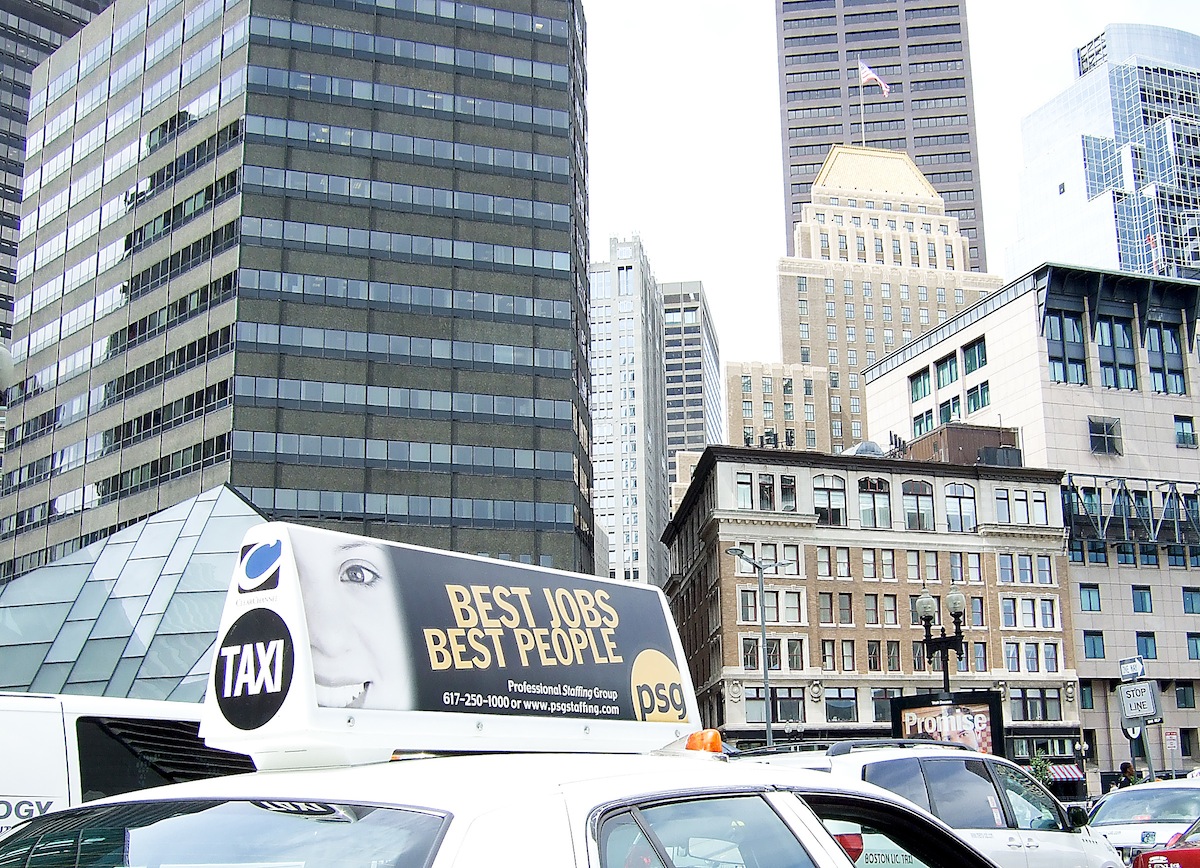Taxi Medallion Prices Are Falling in Boston
Two news stories in the past week outlined an interesting trend in Boston and other major cities: the price of a taxi medallion is plummeting. Why? Services like Uber and Lyft, in short.
In cities that use them, a taxi medallion affords its owner an exclusive license to operate a single cab. Owners are free to transfer the medallions, and in recent decades, a limited supply has given each one enormous value. A few years ago, individual medallions were selling for $1 million in New York City. That’s starting to change. In the New York Times, Josh Barro reports that the ever-upward spiral of medallion prices has finally reversed itself.
As recently as April, Boston taxi medallions were selling for $700,000. The last sale, in October, was for $561,000
[…]
“Right now Uber has a strong presence here in Boston, and that’s having a dramatic impact on the taxi industry and the medallion values,” said Donna Blythe-Shaw, a spokeswoman for the Boston Taxi Drivers’ Association. “We hear that there’s a couple of medallion owners that have offered to sell at 425 and nobody’s touched them.”
There’s an easy enough explanation for this. The explosion of ridesharing apps that allow users to hail non-medallion-wielding drivers with their smartphones has cheapened the value of the taxi industry. Fewer people want taxis. So taxi medallions stand to earn their owners less money. This seems like a simple case of supply and demand. At The Washington Post‘s Wonk Blog, Emily Badger digs into the more complex causes. It’s not just the rising supply of cars that’s cheapening medallion value. It’s the scarcity of drivers.
See, most medallion owners don’t actually drive cabs. They lease their medallions to drivers who pay a fee for the right to pick up fares. In cities with high demand, owners can lease their medallions to multiple drivers, meaning they can have their medallion making them money at all hours. When there aren’t enough drivers looking to lease medallions from the owners, though, this lessens the medallion’s ability to earn its owner money. Badger writes:
The threat to medallion owners isn’t that they’ll lose passengers to these services. It’s that they’ll lose drivers — who have been aggressively courted by Uber. A taxi driver who doesn’t own a cab and medallion can earn comparable fares driving UberX passengers in his private car, without paying a lease fee.
So is this a good or bad thing? As always, your answer probably depends on how you make your money. If you’re a cab driver or if you’re in the medallion-owning business, you’d probably say it’s a bad thing. (Hence part of the reason for today’s planned cabbie protest at City Hall.) Medallions were created in the early 20th century because there were too many drivers, many of them were unsavory, and the industry seemed unregulated and dangerous. Now, owners warn that cities who cede control of the taxi industry are inviting a return to these wild days.
If you’re in the ridesharing business, though, you point out that the status quo doesn’t exactly offer great customer service. Uber and Lyft have found so much success because they capitalized on a great discontent with the taxi industry. Taxi medallions, they say, have long since ceased to benefit the public, and instead, mostly benefit the people who own medallions. They’ve certainly made those owners a killing on their investment in the past decades. Whatever you believe, the actual data on medallion prices in Boston is one of the most concrete demonstration of just how much things are changing because of ridesharing apps.


